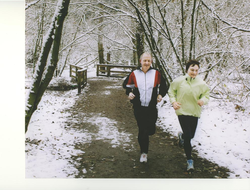Sleep: Esssential for health, but it can be elusive.
Published: July 19, 2019
Do you take sleep for granted?
That is, immediately your head hits the pillow you sleep without interruption until the sound of your alarm, or perhaps better still, your natural body rhythm stirs you.
Many people experience interrupted sleep: either a single night here or there, or for prolonged periods.
It may be that you have difficulty falling asleep, or wake up during the night and can’t get back to sleep. If you work shift work then trying to get enough sleep may be almost impossible.
Perhaps you don’t experience ill effects from lack of sleep, or maybe you have become accustomed to feeling tired, groggy, or lethargic.
Interrupted sleep may have become an accepted occurrence. You may even claim you only need 4 hours of sleep a night.
While there are exceptions to every rule, most people need between 6-8 hours of sleep each night to enable them to function properly each day, but sleep deprivation and sleep disorders are common and wide spread.
50 years ago people, on average, slept 2 hours more than people report sleeping today. 40% of Canadians report sleeping problems.
Today, many people turn to various medications in an attempt to get adequate sleep. Lack of sleep may negatively affect your health, and impact the health of those around you.
What is sleep?
Sleep is considered a behaviour in which your consciousness changes. There are two different types of sleep and several sleep stages.
While sleep behaviour varies such as light and deep sleep, restlessness, stillness, or dream free or dream filled, the stages of sleep follow a distinct pattern and can be identified by your brain wave patterns.
The stages of sleep and brain wave patterns are:
- awake: alpha activity and beta activity
- stage 1 sleep: Theta activity (moving from being awake to sleep)
- stage 2 sleep: brain waves decrease in frequency and increase in amplitude
- stage 3 sleep: transitioning to Delta activity
- stage 4 sleep Delta activity
- REM (rapid eye movement) sleep: theta activity and beta activity.
Stages 3 and 4 are referred to as slow-wave sleep. These stages of sleep last for differing amounts of time and are accompanied by physiological changes such as changes in your heart beat and respiration.
REM sleep usually lasts between 20-30 minutes and is followed by a period of slow-wave sleep (about 1 hour).
As sleep progresses periods of slow-wave sleep shorten and REM sleep lengthens, but the cycle remains at about 90 minutes. Typically 4 or 5 cycles occur during your total sleep time.
Why do you need sleep?
Functioning properly each day is more than being able to make your morning cup of coffee, or going through the motions at work. Sleep is essential for physiological functions such as neurological...link to the full article to learn more.
References
1.
Whitney, E. & Rady Rolfes, S. (2005). Understanding Nutrition. Belmont, CA: Thomson Wadsworth
2.
CSEP (2013) Physical Activity Training for Health Canadian Society for Exercise Physiology http://www.csep.ca/english/view.asp?x=898
3.
Carlson et al (2010) Psychology: the science of behaviour. Custom Publishing
4.
Sleep and health: views about sleep as health determinant, symptom and outcome Smith, ML, & Ory MG, 2014
5.
Centre for Science in the Public Interest (July/august 2010, December 2013, January/February 2011, June 2012, April 2012)

